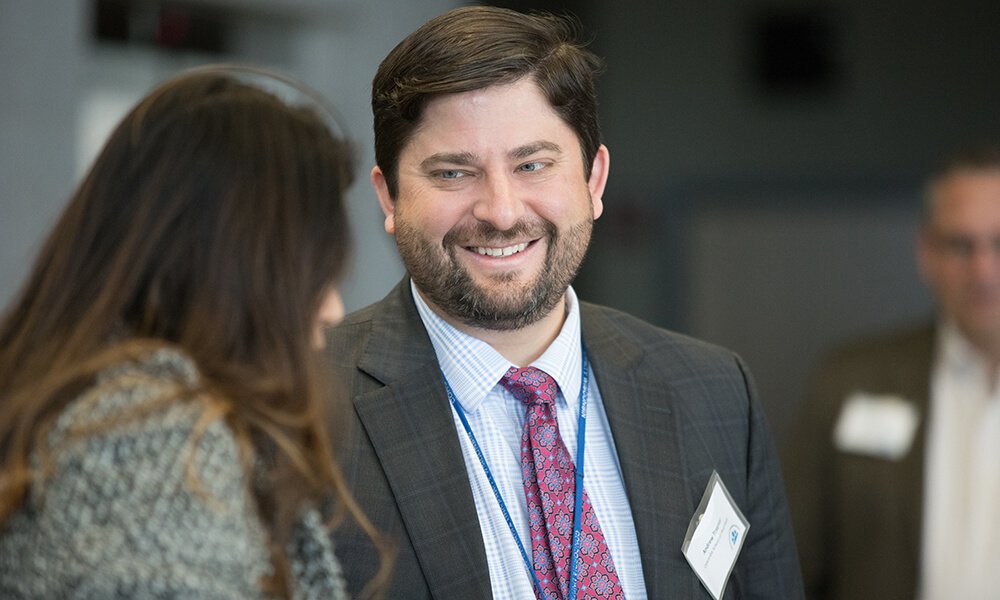
Editor's note: This story first appeared in the spring 2019 issue of the Concordian, the official magazine of Concordia University Wisconsin.
For the past two years, Andrew Traynor, PharmD, BCPS, has been on a mission to create a happier and healthier Wisconsin.
Spurred by the knowledge that illness and death that result from non-optimized medication therapy costs the nation an estimated $528.4 billion annually, the chair of pharmacy practice for Concordia’s School of Pharmacy knew that if he could bring Wisconsin’s health care community together they could work to create better patient outcomes at a lower cost.
The result: the Concordia Medication Management Accelerator (CMMA), an 18-month collaborative that offered participants business development and implementation coaching. Nearly a dozen teams participated in CMMA, which concluded November 2018.
Related: Concordia launches medication management accelerator
Four teams—three of them from CMMA— have continued on in their quest to improve patient outcomes. Concordia is sponsoring the teams as they participate in a national learning and action collaborative called A3. The yearlong A3 experience aims to help health care providers succeed in the era of value-based payment programs by offering coaching and encouraging action.
Daniel Wilk (’17), PharmD, a clinical pharmacotherapist at Monroe Clinic, was among the individuals who participated in CMMA, and now Monroe Clinic is choosing to stay on with A3.
“The whole format and structure of both programs lend themselves to collaboration among the organizations involved,” said Wilk. “It virtually becomes like a huge think tank.”
Monroe’s success story involves a program where pharmacists collaboratively manage conditions such as diabetes, hypertension, and high cholesterol. As a result, within the first year Monroe Clinic was able to reduce the time it took patients to get in to see their physicians from four to six weeks to one to two weeks.
“Having a pharmacist integrated into the care team has changed how we practice at Monroe Clinic,” Wilk said, “and our patients are the true beneficiaries through better health outcomes.”
Traynor said it has been rewarding to nurture professionals, like Wilk, for the benefit of Wisconsin residents’ health.
“I’m so proud of the work of all our teams,” Traynor said. “Convening initiatives like this not only fulfills our mission to develop pharmacists dedicated to providing value-based, patient- centered care that improves the health of our communities, it helps to fulfill our promise to our students, graduates, and partners to be a contributor to their efforts long-term.”
Learn more about Concordia’s School of Pharmacy at cuw.edu/pharmacy.
The spring 2019 Concordian hit mailboxes the beginning of May. View a PDF version of the magazine here. If you are not on our mailing list, but are interested in receiving a free copy, call 262-243-4333.
— This story is written by Kali Thiel, director of university communications for Concordia University Wisconsin and Ann Arbor. She may be reached at kali.thiel@cuw.edu or 262-243-2149.
If this story has inspired you, why not explore how you can help further Concordia's mission through giving.